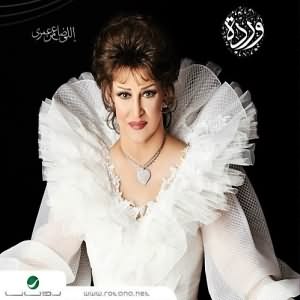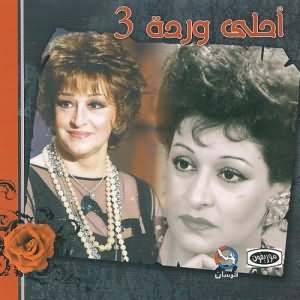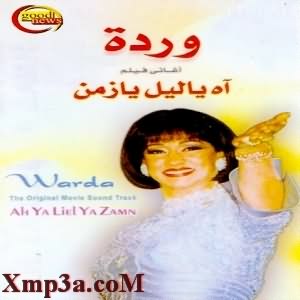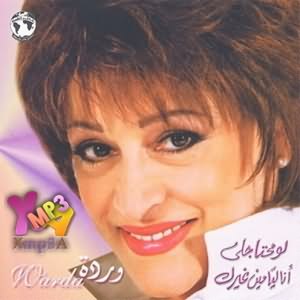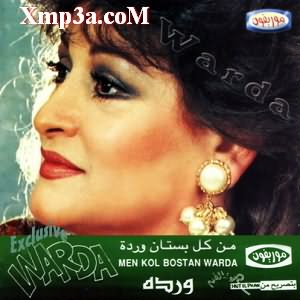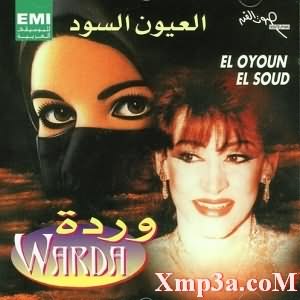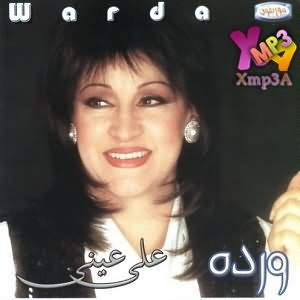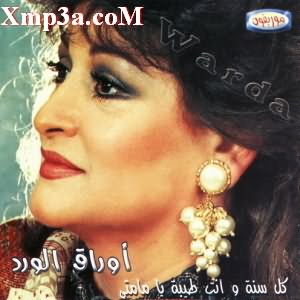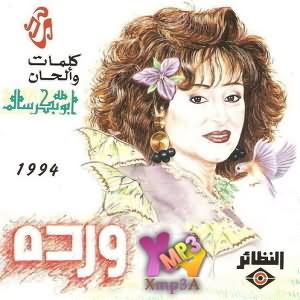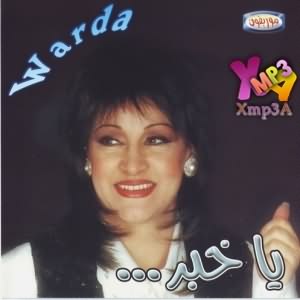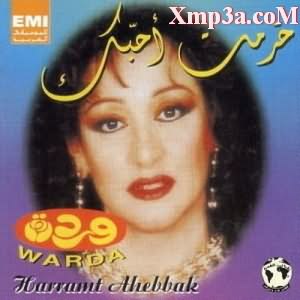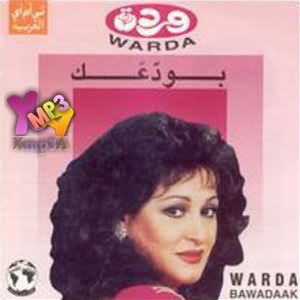About Warda
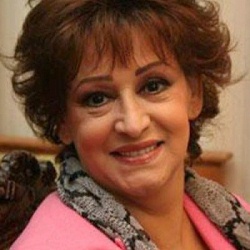
Warda
Full name: Warda Al-Gazaeria
Assumed name: Warda Al-Gazaeria
Birth: July 22nd 1940
Horoscope: الأسد
Place: Paris, France
Nationality: French, Algerian
Work: Singer مغنية
Website: www.wardaonline.com
Biography:
*She was born near Paris in Puteaux in July 1940. Her father, one of the first Algerian immigrants to France, ran a hostel for migrant workers at Boulogne-Billancourt. In 1936 this hostel was already one of the main meeting places of the "North African Star", the first nationalistic organization to fight for the independence of the Maghreb. Later Warda�s father was the owner of the Tam-Tam, a cabaret in the Quartier Latin, with Warda starring. This very cabaret was going to be the seat of the FLN (Algerian Freedom Fighters) up to 1958, when it was closed down and the whole family left France. Warda�s mother was a Lebanese born in Beirut in a Moslem family of good social position. She had taught Warda every Lebanese song of some importance. Thus the girl�s liking for the Middle Eastern song had developed thanks to oral transmission, a most authentic way to hand down traditions. She was only a little girl when she would sing songs by Abdelwahab or Farid Elatrash. Her singing for North African children on the French Radio and Television made her turn towards the Maghreb song, especially the Tunisian one.
Though she was only fourteen in 1954, when the Algerian War of Independence began, she would sing patriotic songs such as "Ya habibi ya mudjahid" (O friend, O fighter), "Bladi ya bladi" (O my Country), "Ya mrawah lelblad" (Thou who goest back to thy Country).
In 1958, as Paris was more and more concerned by the development of the Algerian War of Independence, the whole family had to seek refuge in Beirut where she went on singing militant songs such as "Djamila", dedicated to the women fighting in Algeria, "Ana mil djazair ana arabia" (I am from Algeria, I am an Arab). Though Riad Sombati had only heard her on an Egyptian radio broadcast singing "Djamila", a song she had rendered at the Damascus Festival, he was going to make two songs, for her to sing, on two poems written by the Algerian poet Salah Elkharfi and dedicated to the Algerians fighting for their independence: "Essaidune" (To the underground fighters) and "Nidau adhamir" (Conscience calling). When she arrived in Cairo in 1960 she found Riad Sombati willing to help her: he set to music poems by an Egyptian poet: "Ya huria ana bendahlek" (I am calling you, O Liberty), "Dalia djamila", in honour of Palestine, and he also composed the musical part of a play "Alikhwa thalata Deir Yassine" (The three brothers from Deir Yassin).
In 1961, together with the singers Nagat Esseghira, Sabah, Shadia, Abdelhalim Hafez, Mohammed Kendil and others, she sang both "El guil essaed" (The rising generation) and "Elwatan elakbar", dedicated to the Arab fatherland, in which she sang the passage about Algeria. It was when militing for the Algerian cause that Warda became Warda Eldjazairia (The Algerian Rose).
A few months after Algeria had got its independence, she arrived in her country, a country where she had never been before. She got married. Her husband asked her to give up singing for audiences to look after her family - which she did for ten years. Ten years� silence ! She was very unhappy about singing only for her children, some friends and her own pleasure. As to her career it seemed to be definitively over.
Then, in 1972, as festivities were planned to commemorate the tenth anniversary of the Algerian Independence, President H�ari B�medien asked Warda to sing on this special occasion. She agreed, with the result that her marriage broke down. She kept repeating she needed music as badly as one needs breathing. She had made her choice - you have to sacrifice many things to live up to so great a passion. To accompany her, a whole Egyptian orchestra was sent for. Thus she was accompanied by the Elmassia ensemble complemented by a few Algerian musicians when she sang her comeback song: "Ad�uka ya amali", a poem by the Algerian poet Salah Kharfi, newly set to music by Baligh Hamdi who had been sent for to be present on that occasion. She gave a first recital in Algiers on July 5th, then a second one on November Ist, for the eighteenth anniversary of the War of Independence. She achieved a great triumph.
In December of the same year she left for Cairo where she became very rapidly one of the most famous Arab singers with "El�y�n ess�d", "Khallik hina" and other songs in the same vein composed by Baligh Hamdi, whom she had just married. She played a part in two films: "S�t elhob" (The voice of love) and "Hikaiti maa ezzaman" (My fate and me), in which she sang works by M. Abdelwahab, Kamal El Tawil, Mohammed Elm�gui and by her husband Baligh Hamdi. According to Daniel Caux: "It�s enough to listen to one of her records of that time to understand how people became increasingly infatuated with Warda Eldjazairia. She seems to possess all the qualities necessary to an Arab singer: an engaging voice, perfect intonation and rhythm, an extraordinary command of nuances giving a many-sided singing, a never-ending inventiveness and an outstanding personality. Warda can�t be compared with any other contemporary singer, she surpasses them by far".
As a lecturer of Arabic music at the University of Vincennes, Daniel Caux asked his students: "How are we to define Warda �s specificity which is so much easier to feel than to put into words? I think Warda plays on a specific emotional range combining successfully strength and frailty: on the one side will-power, self assertion, even challenge; on the other side sweetness and a tenderness implying some kind of vulnerability. But the paradox is that this vulnerability acts as a strength on the emotional level since it moves and fascinates us. In turn, and sometimes simultaneously, her voice gaining strength sings out to the whole audience. In doing so she never overstrains her voice to the extreme but she sooner changes its texture. Becoming more diffuse, her voice widens subtly till it fills the whole space."
We wanted to quote Daniel Caux at some length because he has defined Warda �s vocal and artistic qualities very well in his lecture. Let�s insist on the very personal way Warda has in singing in flexible arabesques about the underlying definite structures and on her running more and more risks, assuming, then transcending them.
She is presently the only Arab singer able to reach beyond the linguistic and musical boundaries within the Arab World. If her musical background, her very extraction enable her to interpret all kind of Arab folklore remarkably, from countries as different as those along the Arabian Gulf, the Mediterranean or the Atlantic Ocean, her own influence is very conspicuous in Baligh Hamdi�s compositions with their Flamenco, Oranese and Shawian songs, traditional Andalusian vocalization and the powerful singing of the Tunisian Sahel. It is particularly noticeable in the songs posterior to 1972.
Since her comeback, Warda has released four or five albums every year: her repertory is now a large one. It looks as if Warda wanted to make up for the ten years� silence. There is none of her gala performances in Arab countries without some novelty apt to surprise the audience. It happens unfortunately that some of the songs don�t come up to her talent and also people are not always ready to follow her in her wild attempts to come with new achievements again and again.
Having firmly established her reputation, she has been honoured in every possible way. Loved by all people, she gives them what their affectionate hearts are longing for: sensivity and tenderness. She is loved and appreciated for what she is - she is not a substitute for Um Kaltsum. She is Warda Eldjazairia. We may be sure that we�ll hear a lot more about her in the coming years. Her long and and brilliant career is an ornament to Arab music and will certainly become a landmark in its history.
In the present CD the songs interpreted by Warda were sung in the presence of President B�medien at the evening performance given to celebrate the tenth anniversary of the Independence of Algeria. The most important part of the concert, "Min baid" is a poem written by an Algerian poet Salah Elkharfi, set to music by an Egyptian composer, Baligh Hamdi. A number of melodic passages draw their inspiration from airs that are part of the Algerian folklore. Here Warda�s interpretations are at their best; her pleasure in improvising freely on those topics familiar to her is evident. "Min baid" is both a love song and a patriotic anthem; in this case the love borne Algeria is far more important than sensual love.
The two other songs interpreted by Warda in 1972 were composed in the first years of her career when she had met with great success. One was composed by Mohammed Abdelwahab: "Es�al d�m� aineya", the other one by Riad Sombati: "Laobat el Ayyam". Both emphasize the importance of human love, a felicitous choice which balances "Min baid".
Albums
ورده الجزائرية, اغاني وردة, وردة الجزائرية, البومات وردة الجزائرية, الفنانة وردة, الجزائرية, xmp3 , download, free, flac, aac, itunes, covers, remixes ,EXCLUSIVE ALBUMS , NEW RELEASES , LATEST SINGLES , RECOMMENDED FOR YOU , Videos , music
Update Required
To play the media you will need to either update your browser to a recent version or update your Flash plugin.
EXCLUSIVE ALBUMS, Xmp3A, Download FLAC Albums, iTunes, CD Covers, Remixes, Singles, Albums, Hi-Res, TIDAL, deezer, Spotify, amr diab flac, ����� ����� flac



